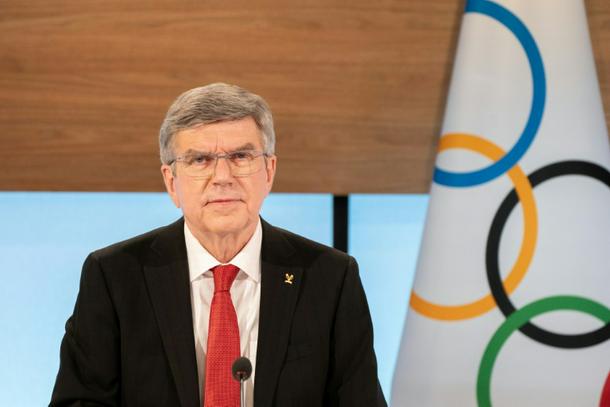Olympic chief pleads for no boycott of Beijing 2022
Olympic chief Thomas Bach on Friday pleaded that there be no boycott of the 2022 Beijing Winter Games over China’s treatment of its Uighur minority, saying it would only punish athletes.
Beijing has come under increasing fire from rights groups and some governments amid claims that actions towards the Uighur and other minority groups in the northwestern region of Xinjiang amount to genocide.
Campaigners believe that at least one million Uighurs and other Turkic-speaking, mostly Muslim minorities are incarcerated in camps in Xinjiang, where China is also accused of forcibly sterilising women and imposing forced labour.
Beijing 2022 Winter Games boycott ‘ineffective’, says US Olympic committee president Susanne Lyons https://t.co/XMdedlumq0
— SCMP News (@SCMPNews) March 11, 2021
After initially denying the existence of the Xinjiang camps, China later defended them as vocational training centres aimed at reducing the appeal of Islamic extremism.
US ski star Mikaela Shiffrin, who would be one of the pin-ups for the Beijing Games, said earlier this month that “legitimate proof” of rights abuses in some Olympic host countries forces athletes to choose between their job and their morals.
But Bach batted off talk of a potential boycott, claiming the International Olympic Committee’s political neutrality and saying it was up to governments to live up to their responsibilities.
The IOC president said “people must learn from history. The boycott of the Olympic Games has never achieved anything”, citing a boycott of the 1980 Olympics in Moscow following the Soviet invasion of Afghanistan.
“The Soviet army withdrew in 1989, so it really served nothing but punishing their own athletes and led to a counter-boycott in Los Angeles (in 1984).
“Athletes would be the ones suffering,” said Bach, who was a spokesman for West German athletes contesting the 1980 Moscow Games boycott – a move which meant he was unable to defend his Olympic team fencing gold.
Bach was talking at the end of the three-day IOC Session which saw him re-elected for a second and final four-year term and IOC members approve all 15 recommendations of Olympic Agenda 2020+5, the IOC’s vision for the future of the Olympic Movement.
Based on five trends (solidarity, digitalisation, sustainability, credibility, and economic and financial resilience), the new Agenda embraced human rights.
And Bach, underlining the political neutrality of the IOC, enshrined in the Olympic Charter and acknowledged by all 193 member states of the United Nations, was adamant that the IOC was addressing the rights issue “within our remit”.
“Within the remit of the IOC we are taking this very seriously, this means, with everything that is related to the Olympic Games: human rights and labour rights and others are and/or will be part of the host city contract and on this we are working very closely with the organising committee,” he said.
“We are also monitoring… for instance, supply chains, labour rights, freedom of press and many other issues.
The Chinese Olympic Committee has offered Covid vaccine doses for those competing at the summer Games and at the 2022 winter Games in Beijing.
👉 https://t.co/xt5lHqLJvd pic.twitter.com/viME6mnf0h— BBC Sport Wales (@BBCSportWales) March 11, 2021
Read Also:Super Eagles legend slams Rohr over invited players for AFCON qualifiers
“This is our responsibility… and this we are taking very seriously. We are not a super world government where the IOC could solve or even address issues for which not the UN Security Council, nor the G7, nor G20 has a solution.
“This is in the remits of politics. We have to live up to our responibilities within our area of responsibilities and governments have to live up to their responsibilities in their remits.”

